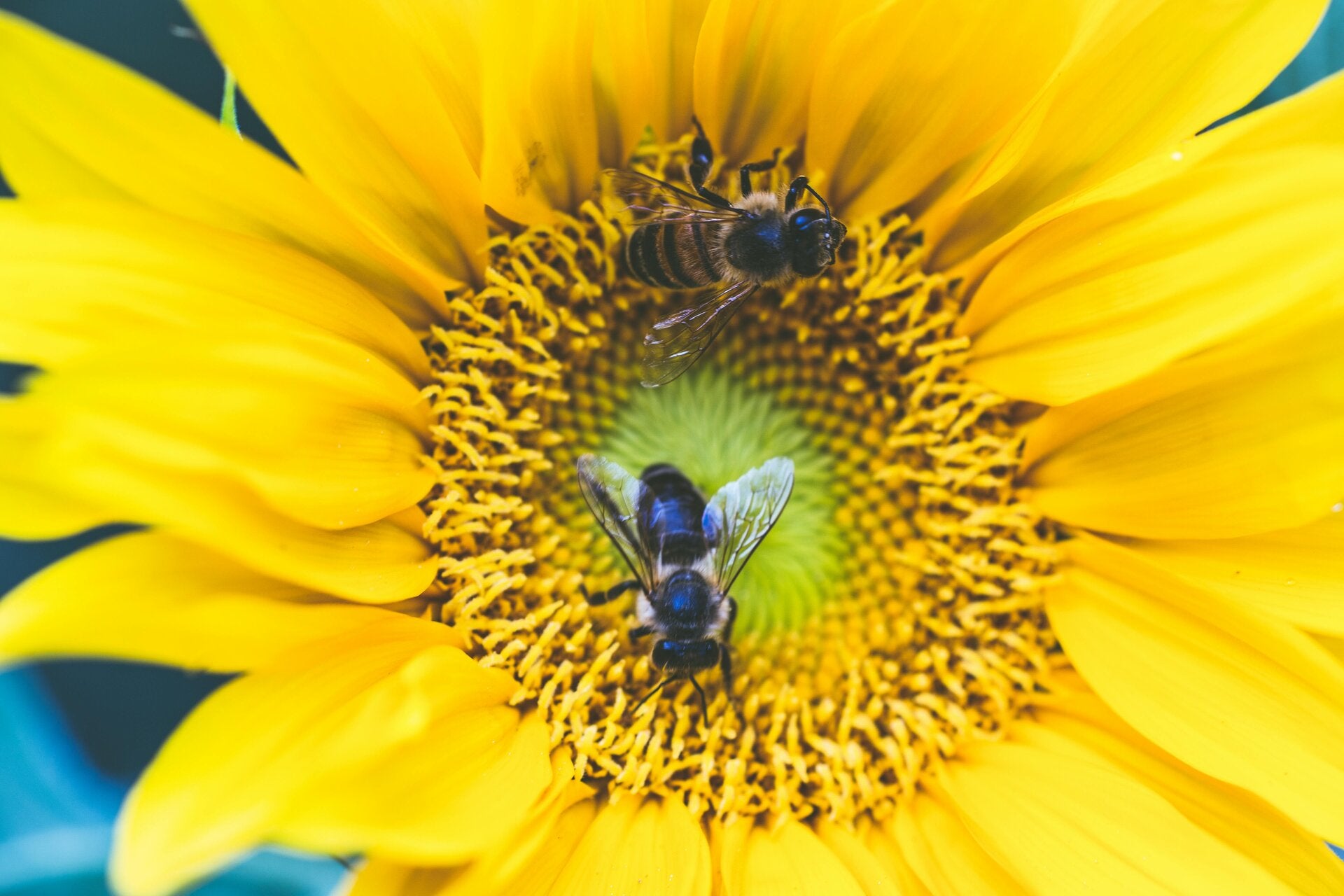
When we think about solutions to climate change, our minds often jump to solar panels, electric cars, and tree plantings. But one of the most powerful allies in the fight against climate change is much smaller- and it buzzes. Bees, along with other pollinators, play a crucial role in maintaining healthy ecosystems and supporting climate resilience
Their Delicate Balance
Bees are vital for balancing the connections in our ecosystems. They provide food for us, support agriculture, and facilitate the reproduction of plants. Without them, roughly 1/3 of the food consumed by humans would disappear and the availability of all nutritious food would decline rapidly. Bees are also among the world’s most effective pollinators. By transferring pollen from flower to flower, they help fertilize plants, enabling them to produce fruits, seeds, and new growth.
But their influence goes far beyond this. Plants rely on bees for larger ecosystems that store carbon, protect soils, and support biodiversity.
Bees and Carbon Storage
Healthy and biodiverse ecosystems act as carbon sinks, pulling carbon dioxide out of the atmosphere and locking it into soils and plants. By ensuring the reproduction of wildflowers, shrubs, and trees, bees indirectly support these natural carbon storage systems. Pollinator-dependent plants like clover and alfalfa even enrich soils with nitrogen, which boosts infertility and reduces the need for chemical fertilizers (a major source of greenhouse gas emissions).
Supporting Climate-Resilient Landscapes
As climate change alters weather patterns, ecosystems need resilience to withstand droughts, floods, and extreme heat. Pollinator-driven plant diversity strengthens landscapes against these pressures. Meadows, forests, and grasslands with rich pollinator activity are better able to recover from disturbances, store water, and provide habitats for countless other species.
In other words, bees don’t just help plants- they help entire ecosystems adapt to climate change.
The Threat to Bees
Unfortunately, bees themselves are under threat from the very crisis they help combat. Rising temperatures, habitat loss, pesticide use, and shifting flowering times all disturb their life cycles. A world without bees would not only be a world with fewer crops but also a world with weakened ecosystems less able to store carbon and more vulnerable to climate chaos.
What We Can Do to Protect Bees
- Plant pollinator-friendly gardens
- Avoid pesticides
- Support sustainable farming
- Advocate for pollinator policies
- Help these websites: The Bee Conservancy, Save The Bees USA
A Buzzed Reminder
Bees remind us that climate solutions can be as small as a garden buzzing with life. By protecting pollinators, we’re helping to secure out food supply and strengthen one of nature's quietest defenses against climate change.

Add comment
Comments